- Home
- Edward Rutherfurd
China Page 2
China Read online
Page 2
His aunt’s house was a typical colonial bungalow of the better sort, with a veranda front and back, whose wide eaves were supported by stout ionic columns painted white. Its airy central hall gave onto a plain but gracious drawing room and a dining room, both furnished in English style. As the two men reached the door, Indian servants, spotlessly dressed in white, seemed to appear from every corner.
Aunt Harriet had obviously heard the cab because she was already in the hall. Charlie loved his aunt. Like his own mother, her sister, she had still kept the wavy golden hair of her youth. She had frank blue eyes, and she and her husband offered any newcomer to British Calcutta the easygoing hospitality that was the hallmark of colonial merchant life.
“What are you doing here, Charlie?” she demanded. “Shouldn’t you boys be working?”
“We have been working, Aunt Harriet,” said Charlie. “But a packet of letters arrived from England this morning, including one from Mother for you. Thought I’d bring it to you straightaway.”
Aunt Harriet smiled.
“And I suppose now you want to be fed?”
“Not at all. In fact, we can’t stop. We’re on our way to luncheon with Colonel Lomond.”
“Colonel Lomond? How very grand.”
“Father went to school with him, actually,” Charlie explained. “So I wangled an invitation for us to lunch at his club. Thought it would amuse John to see the place.”
“Then you boys had better go,” said Aunt Harriet. “You mustn’t be late for Colonel Lomond.”
“We’re off,” said Charlie.
* * *
—
It was time to have a man-to-man talk. And since they had ten minutes alone in the cab, Charlie decided to do it now.
“Do you know what’s wrong with you, Trader?”
“Tell me.” Trader managed a half-smile.
“You’re a good friend. I’d trust you with my life. But you’re a moody fellow. Look at you today. All you have to do is observe and enjoy.”
“I know.”
“But it’s deeper than that. Your trouble is that you’re never satisfied. Whatever you’ve got, you always dream of more.”
“This may be true.”
“I mean, you were orphaned, which was damn bad luck. But not the end of the world. You went to a decent school. You were left a tidy bit of money. You’ve got me for a friend. We’re in Rattrays, which is one of the best agency houses in India. And though you don’t seem to believe it, you’re a handsome devil, and half the women in Calcutta are in love with you. What more do you want?”
“I don’t know, Charlie,” his friend confessed. “Tell me about this Colonel Lomond we’re to meet. He has a family?”
“A wife. I call on her occasionally. You know, politeness and all that. Gracious lady. His son’s in the army, bit older than us. He has a daughter. Met her once or twice at the house. Quite handsome.” Charlie smiled. “But I keep a distance. The colonel wouldn’t like it if I got too pally.”
“Because he’s an aristocrat.”
“Old Scottish family. Older brother in the ancestral castle—you know the sort of thing.”
“And we’re merchants, Charlie. Tradesmen, dirt beneath his feet.”
“He treats me all right.”
“That’s because your father went to school with him.” The dark-haired young man paused, and when his friend didn’t reply, he continued: “You know what annoys me, Charlie?”
“What?”
“Men like Lomond look down on us because we’re in business. But what’s the British Empire? A huge trading enterprise. Always has been. Who runs India? The East India Company. Who owns the army here? The East India Company. All right, the company nowadays is the British government in all but name, and much of the trade’s in the hands of independent merchants like us. But the fact remains, the purpose of the army, in which Colonel Lomond and his class are officers, the reason for its existence, is to protect the trade. You and me. No merchants, no army.”
“You’re not going to say that to him, are you?” Charlie asked nervously.
“I might.” Trader looked at him grimly, then smiled. “Don’t worry.”
Charlie pursed his lips, shook his head, and returned to his theme. “Why can’t you just play the game, John? The way things are, you and I have been dealt a pretty good hand. My father spent his life working for the East India Company and retired with a decent fortune, you know. He’s got a big house in Bath. Our next-door neighbor’s a major-general. Jolly old boy. Plays cards with my father. See what I mean? It’ll do for me.”
“It’s not to be sneezed at, Charlie.”
“But if I wanted more, here’s how the game works. I may get lucky at Rattrays, finish up with enough to buy an estate, set myself up as a landed gentleman. Happens all the time. My son might get into a good regiment and find himself a brother officer of one of the Lomonds.” Farley looked at his friend seriously. “That’s the game of the social classes, Trader, if you want to play it.”
“It takes a long time.”
“Couple of generations, that’s all. But you know what they say?” Charlie Farley leaned back and smiled. “Respectability…is just a matter of dates.”
* * *
—
As he entered the stern portals of the Bengal Military Club, John Trader felt all his gloom return. For a start, his black frock coat, suitable only for the cooler British climate—yet which the club’s dress code demanded that they wear—made him uncomfortably hot. And then, of course, there was the club itself.
The British were not yet rulers of all India, but they were masters of Bengal. And in Bengal’s great city of Calcutta, the evidence was everywhere. At the racetrack. At the golf links. And nowhere more surely than on the esplanade, where the great classical facade of the Bengal Military Club gazed down, in colonial splendor, at those who passed before its doors.
Who were these passersby? Why, Indians and Anglo-Indians, of course, but British persons, too: merchants, tradesmen, the middle classes and below—all those, that is, who did not rule, but worked.
For the members of the Bengal Military Club were rulers. Army officers, judges, administrators of the British Empire, successors to imperial Rome—or so they saw themselves. Like the Roman senators they emulated, these warriors and landowners despised both the professions and, above all, tradesmen.
Colonel Lomond was already awaiting them in the big, airy lobby, from whose walls pictures of statesmen and generals stared down upon John, crushingly. He found himself marched into the dining room immediately.
* * *
—
The white linen tablecloth was starched, stiff as a board. Georgian silver, Wedgwood plates, heavy crystal glasses. Sherry served with the soup, to begin. French food might be in fashion, but the colonel disliked it, so honest beef was served with cabbage and potatoes, grown locally in British-run market gardens. The wine was excellent. In short, they might have been at a club in the heart of London.
As for Colonel Lomond himself, he was in uniform that day, a handsome scarlet tunic and black trousers. He was tall, slim; his thinning hair was still dark. His eyebrows turned up at the ends so that he looked like a noble hawk. He was every inch the Scottish chief.
It was clear that he was quite determined to be friendly to young Farley, whom he addressed as “my boy,” referring to Mr. Farley senior, now residing in Bath, as “your dear father.”
“I had a letter from your dear father. He says old General Frobisher’s living near him.”
“Did you know him, sir?”
“Yes. A great sportsman. Big game.”
“Tigers?”
“Certainly. When he first came out, you know, they used to hunt on foot. Not the big affairs with elephants, like nowadays.” He gave Charlie an approving nod.
What was it
about Charlie Farley that made Colonel Lomond like him? Partly, of course, that he was an amiable fellow, just as his father had been. Straightforward, polite, easy. But something more. He knew where he fitted in, and he was content to be there. Charlie would never overstep the bounds. When he’d told Lomond frankly that he had a friend who’d be interested to see inside the club, but that he’d no way of satisfying his friend’s interest, “unless you were to invite us to lunch, sir,” Lomond had invited them at once. “Cheeky young fellow,” the colonel had later remarked to his wife, with the same approval he would have accorded a daring young officer. But Charlie would never embarrass him by trying to join the club. Not that Colonel Lomond would have minded, particularly, if Charlie Farley was a member. But that, of course, was not the point. As all who governed Britain’s empire knew, the point was not the individual case, but what it might lead to.
Which brought the colonel’s gaze to John Trader.
There was something about young Trader that Lomond did not like. He wasn’t sure what. Naturally, since the dark-haired young man was Farley’s friend, he’d be pleasant towards him. But his years of living in India and observing men had developed in Colonel Lomond a sixth sense. And at this moment he was experiencing the same unease he’d once felt just before he discovered a cobra in his house.
“What part of the country do you come from?” he tried. Always a safe question.
“I was brought up in the West Country first, sir,” Trader replied. “Then just outside London. Blackheath.”
“Blackheath, eh? Used to be highwaymen up there in the old days, what?” Though it was said in a jocular way, was there a subterranean hint that Trader might be a highwayman himself? Of course not. “You have family there now?”
“I’ve no family living,” Trader replied.
“Nobody at all?”
“There used to be some distant relations of my father’s, generations ago, I believe. But there was a family quarrel, and they never spoke again. I don’t even know their names or where they might be.”
“Oh.” The colonel tried another tack. “You and Farley here weren’t at school together, were you?”
“No, sir. Charterhouse.”
“Fine old school.” The colonel took a sip of wine. Not quite Harrow, of course, where he and the Farleys had gone.
“Trader saved my life, sir,” Charlie said hopefully.
Colonel Lomond looked at Charlie noncommittally. They both knew that Charlie had already told him. But the colonel did not wish to grant this dark stranger a triumph.
“Glad to hear it,” he said with a brief nod. “If we have dinner someday,” he added vaguely to Trader, “you must tell me the whole story.”
* * *
—
The tablecloth was removed for the dessert course. The colonel passed the decanter of port around the table. They had eaten well. If the colonel had not addressed Trader directly during the meal, while he looked fondly at Charlie, it could be taken for absent-mindedness. Now, however, it seemed there was something on his mind.
“Tell me, my boy, your agency house, Rattrays…” He leaned towards Charlie just enough to indicate concern. “They’re all right, aren’t they?”
“Absolutely, sir. Sound as a bell.” Charlie smiled. “My father asked me the same thing. After the last crash, sir, Rattrays believes in moderation.”
“Good.” The colonel nodded, relieved. It was only two years since the collapse of the mighty trading house of Palmers—a victim of the excessive greed and debt that periodically returns, like the plague, to every market—had brought down most of the agency houses in Calcutta, ruining countless widows and orphans. “Of course,” the colonel conceded over his glass of port, “back in the last century, some of the East India Company nabobs made vast fortunes in just a few years.” A faraway look came into his eyes, indicating that, should chance place it in his path, even a valiant soldier like himself wouldn’t take an extra hundred thousand pounds amiss.
“The only fellows who make those quick fortunes at the moment, sir,” Charlie said, “are the men who go over to Canton, in the China trade.”
“So I hear. Bit of a dirty business, isn’t it?” the colonel added quietly.
“Well, we’re not in it, sir,” said Charlie, receiving a nod of approval in return.
And now, having remained politely silent for so long, John Trader decided to speak.
“I’m sorry you don’t like the China trade, sir,” he remarked. “It’s based on tea, isn’t it?” Was there the faintest hint of menace in his tone?
“Tea. Of course,” the colonel grunted.
“The British drink tea, which is imported from China, because that’s almost the only place which grows it. The tea is taxed. And the tea tax pays for most of the running costs of the British Navy.”
“I really wouldn’t know,” said the colonel.
“So it can’t be the tea you object to, sir,” Trader continued. “Is it the opium we supply to the Chinese in return for the tea that you don’t like?”
“It’s up to the Chinese what they buy, I daresay,” Colonel Lomond remarked, with a glance at Charlie to indicate that he’d had enough of this.
“The English cup of tea,” Charlie cut in cheerfully. “You wouldn’t believe people could drink so much. It’s not as if anyone really needs tea. But they insist on having it. More every year.” He gave Trader a warning look. “Actually, it’s all paid for in silver, you know.” He turned to the colonel. “I’m afraid, sir, that we must be going. You know, work and all that.”
“Of course, my boy. Always a pleasure to see you,” Lomond said gratefully.
“It’s a triangular trade,” Trader went on, quietly but relentlessly. “Chinese dealers get their hands on opium through our Canton agency men. Those Chinese pay our agency men with silver. The agency men use the silver to buy tea. But where does the opium come from? India. Bengal mostly. Grown by the East India Company. Surely that’s right, isn’t it, sir?”
Colonel Lomond did not answer. He rose from the table. Taking Charlie by the arm in a friendly manner, but in a way that obliged Trader to walk behind, he led them towards the door.
Moments later, they were all walking down the steps of the club together and would have parted there and then in the street if a voice had not interrupted them.
“Papa!” It came from a covered carriage where, accompanied by her mother, a servant, a coachman, and outriders, a young lady dressed in silks and carrying a parasol was being driven along the esplanade. The carriage stopped.
“Good afternoon, Papa,” said Agnes Lomond. “Have you had a good lunch?”
Colonel Lomond hadn’t expected this encounter, but turned to his daughter with a smile, and to his wife with a look of caution which that lady noted at once.
“You both know young Farley, of course,” he said genially as the two women greeted Charlie. “And this,” he added vaguely, indicating Trader with a hand that had suddenly gone limp, “is a friend of his.”
“John Trader,” said Trader, smiling politely at Mrs. Lomond before shifting his glance towards her daughter. But once resting on the younger woman, his dark blue eyes did not move.
Agnes Lomond was twenty and already a lady. There was no other word for it. Her mother was a handsome, stately matron. But Agnes was slim, like her father, and a little taller than her mother. Her face, well protected from the sun, showed a wonderful pale complexion. If her nose was too long for her to be called pretty, it served only to make her look more aristocratic. Of her character, it was impossible to guess anything at all.
Perhaps it was this reserve, or her auburn hair, or the fact that she was socially unattainable, or her dark walnut eyes, or a deep desire to steal her from her father—but whatever the causes, John Trader’s mouth opened and he stared at Agnes Lomond like a man in a trance.
Her
mother saw it and intervened at once. “Will you go with us?” she asked her husband, who promptly stepped up into the carriage. “We must let you and your friend get to your work, Mr. Farley.” She gave Charlie a nod, to which he returned a bow as the carriage moved off.
But Trader forgot to bow. He only stood and stared.
* * *
◦
The red sun was setting once again when Jiang Shi-Rong, emerging from the pine groves through which the old road led, came in sight of the city. High above, like a heavenly rib cage, great bars of cloud lay across the sky, catching the orange glow of the sun in the west. As he always did, whenever he gazed upon its mighty walls, its towers, its huge curved roofs of gleaming tiles, Jiang Shi-Rong caught his breath.
Beijing. It was magnificent.
Yet was it his city?
* * *
—
Jiang knew that the people who called themselves the Han—his people—had built a walled city on the site three thousand years ago. But it was only five centuries ago that Kubla Khan, a grandson of Genghis, the mighty Mongol conqueror, had made himself overlord of China and, after building fabulous Xanadu on his summer hunting grounds in the steppes, had chosen this northern town as his Chinese capital.
But after less than a century, a native Han dynasty, the shining Ming, had managed to kick the Mongols out and strengthen the Great Wall to deter other invaders. They’d kept Kubla Khan’s capital, however. And for three centuries the Ming had ruled China.
It had been a golden age. Literature and the arts had thrived. Chinese scholars had printed the greatest encyclopedia of herbal medicine the world had ever seen. Chinese fleets explored westward to Africa. Ming porcelain was the envy of the world.
But even the shining Ming came to an end. The pattern had been seen in China so many times before: a gradual degeneration, a weak emperor, a peasant revolt, an ambitious general trying to seize power. And in this case, another huge invasion from the north—this time a confederation of clans—the Manchu—from the vast forests and plains northeast of the Great Wall.

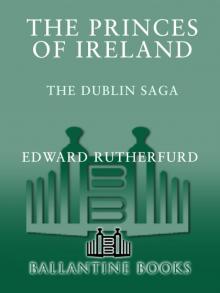 Princes of Ireland
Princes of Ireland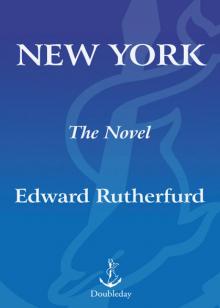 New York
New York Sarum
Sarum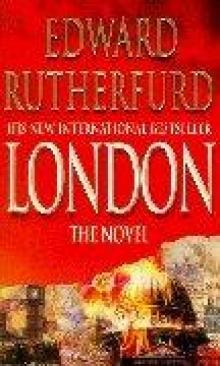 London
London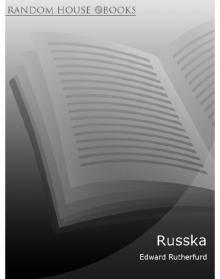 Russka: The Novel of Russia
Russka: The Novel of Russia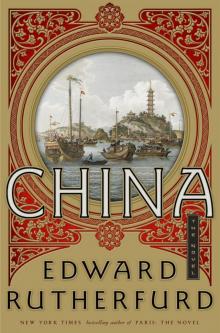 China
China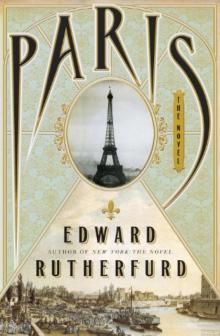 Paris
Paris The Forest
The Forest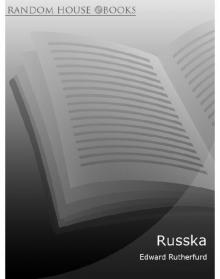 Russka
Russka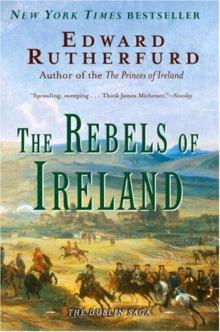 The Rebels of Ireland: The Dublin Saga
The Rebels of Ireland: The Dublin Saga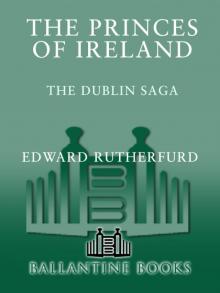 The Princes of Ireland
The Princes of Ireland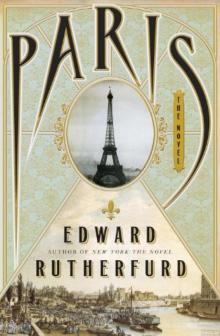 Paris: The Novel
Paris: The Novel